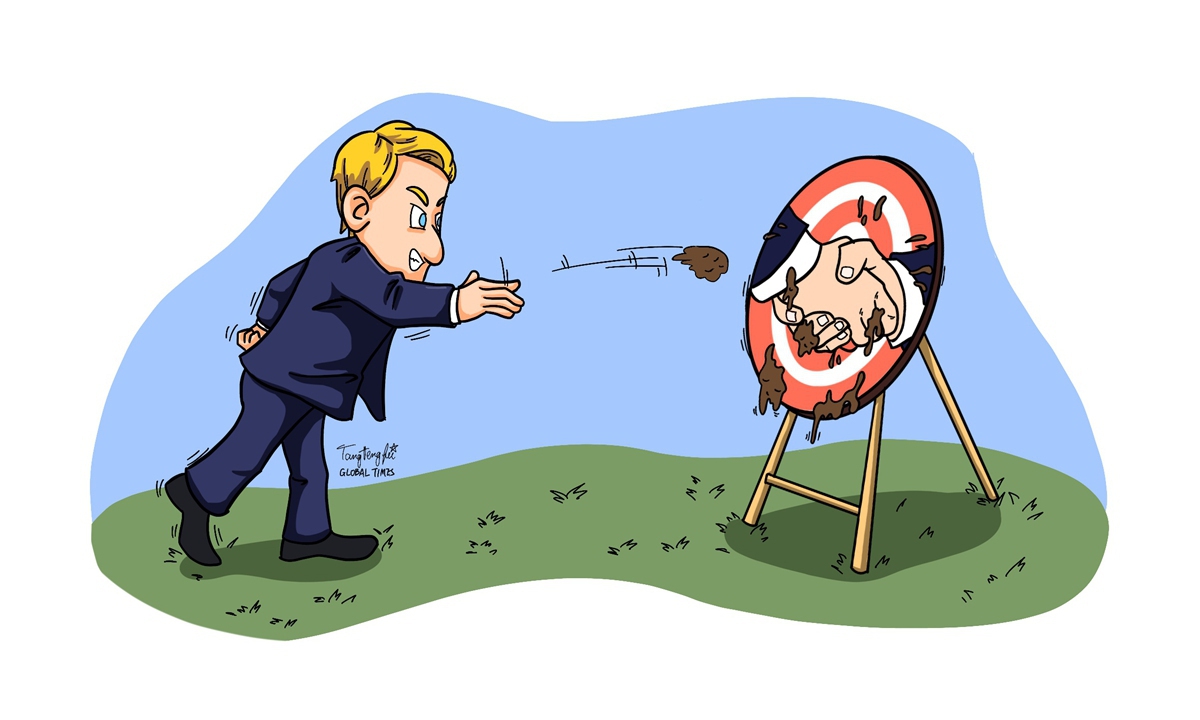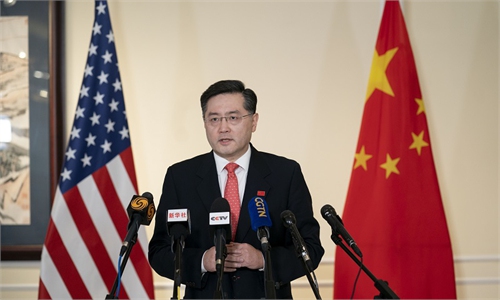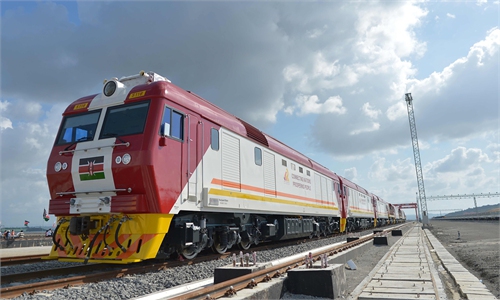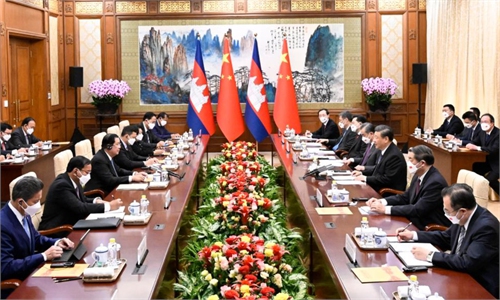
Illustration: Tang Tengfei/GT
As the International Monetary Fund (IMF), World Bank and India this week will hold a new meeting on the issue of global debt, Western media and some politicians are trying to shift the blame to China. They again hype the "debt trap" in order to discredit China. The West does not seem have the sincerity to solve the debt problem. Their real intention seems to defame China and drive a wedge into partnerships between China and other developing countries.Western countries are the real culprits behind the "debt trap" challenge faced by some developing countries. In 1980s, the Western-dominated World Bank and IMF began to lend money to developing countries in Latin America, causing some countries there falling into stagflation, which is still haunting the region.
After the global financial crisis in 2008, due to policies such as quantitative easing, the yields of government bonds continued to fall, and they turned to actively create conditions for less developed countries to issue sovereign bonds in the international capital market, gradually forming the "Frontier Markets" with relatively high risks which were matched by high returns.
The favorable conditions for issuing bonds have prompted some less developed countries to borrow heavily, resulting in a rapid surge in the debt levels of developing countries. Take Zambia - the first African sovereign default in 2020. The main debt pressure comes from the $3 billion outstanding Eurobonds it issued in the international capital market. It can be seen that the West's premature introduction of underdeveloped countries into the international capital market and connivance with their wanton borrowing is the root cause of today's debt woes.
Sovereign loans provided by China are aimed at promoting local development. Loans provided by China to African and other developing countries include interest-free loans, preferential loans and preferential export buyer's credit.
Since China has repeatedly announced debt relief, interest-free loans currently account for only 4 percent of China's total foreign assistance. That is to say, China has almost canceled all the debts in its capability. When indebted countries have problems repaying their debts, China always resolves the issue through negotiations and other equal means with the purpose of activating the development capacity of the relevant country, so as to promote the settlement of the debt issue through promoting their economic development.
For instance, Sri Lanka has recently encountered debt repayment difficulties, and China has announced the extension of Sri Lanka's debt due in 2022 and 2023 to help Sri Lanka ease the pressure on short-term debt repayment.
The theory that "China creates a debt trap" actually reflects the reality that Western intervention is ineffective.
After the end of the Cold War, the West lost its clear strategic purpose in Africa and other developing countries. After extensive reflection and discussion, neoliberalism has become the mainstream of development politics and economics. They believe that poverty is the original sin of underdeveloped countries, and that poor governance prevents development no matter how much aid is invested.
Based on this view, some Western countries combine development aid with political intervention, and control the development trend of underdeveloped countries through a series of aid with specific conditions attached. However, Western political and economic intervention did not promote development in less developed countries, but instead caused turmoil and conflicts.
Facing the development difficulties in Africa, China began to innovate in its assistance model in the 1990s, providing unconditional loan support to underdeveloped countries, giving these countries bullied by the West an opportunity to choose, providing them with bargaining chip for negotiating with the West on aid terms.
In recent years, with the expansion of China's foreign aid, the majority of developing countries have correspondingly increased their international discourse power. This forces the West to continue to face their intervention failure, and the "China-created debt trap theory" is just the expression of the West's anger and frustration.
After the end of the Cold War, Western aid to the developing countries began to rely on financial aid to promote political and economic system reforms in recipient countries, and for the large-scale infrastructure that developing countries urgently needed to build, they were encouraged to use international capital market to seek financing, laying the hidden danger of the debt crisis.
The COVID-19 pandemic and the Ukraine crisis has caused developing countries to face more acute development risks. Western countries should jump out of their geopolitical thinking and come out with constructive solutions instead of blaming and attacking China.
The author is professor with School of International Relations and Diplomacy, Beijing Foreign Studies University. bizopinion@globaltimes.com.cn



